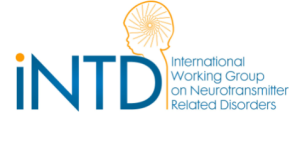About the iNTD Registry
iNTD is the first international patient register for neurotransmitter related disorders. This register enables a detailed analysis of the natural courses of the diseases, the diagnostic approaches and the current therapy strategies, the quality of life of the affected patients, the gene therapy treatment and follow up of AADC patients as well as the course and the outcomes of patients´ pregnancies.
Patients with any of the following diseases can be included
Neurotransmitter disorders
- Aromatic amino acid decarboxylase (AADC) deficiency
- Tyrosine hydroxylase (TH) deficiency
- Dopamine beta-hydroxylase (DßH) deficiency
- Monoamine oxidase A (MAOA) deficiency
- Dopamine transporter (DAT) deficiency
- Vesicular monoamine transporter 2 (VMAT) deficiency
BH4 Deficiencies
- Autosomal recessive GTP cyclohydrolase deficiency
- Autosomal dominant GTP cyclohydrolase deficiency (Segawa disease)
- 6-Pyruvoyl-tetrahydropterin synthase (PTPS) deficiency
- Dihydropteridine reductase (DHPR) deficiency
- Sepiapterin reductase (SR) deficiency
- Pterin-4a-carbinolamine dehydratase (PCD) deficiency
Cerebral folate deficiencies
- Folate receptor alpha (FOLR1) deficiency
- Dihydrofolate reductase (DHFR) deficiency
Serine deficiency disorders
- 3-phosphoglycerate dehydrogenase (3-PGDH) deficiency
- 3-phosphoserine phosphatase (3-PSP) deficiency
- Phosphoserine aminotransferase deficiency
Disorders of glycine metabolism
- Glycine encephalopathy, also known as Non-ketotic hyperglycinaemia
GABA related disorders
- GABA-transaminase-deficiency
- Succinate-semialdehyde-dehydroxylase deficiency
Co-chaperon deficiencies
- DNAJC12 deficiency
Patients with suspicious CSF results (suggesting neurotransmitter related disorder) without known
Major aims of the study:
To describe…
- the natural history and outcome of neurotransmitter disorders,
- the long-term organ-specific complications
- the survival rate
- the genotype/phenotype correlation
- the differences in the disease course relating to the genetic background / ethnic origin/ gender effects
- the efficacy and safety of current treatment strategies
- the diagnosis, treatment and management of affected individuals in different countries.
- to identify the major impact of a rare inherited disease for patients and their families regarding the quality of life, school education, professional career and social life
- the procedures associated with AADC gene therapy as well as the outcome of AADC gene therapy
- the course and the outcome of pregnancies from women with neurotransmitter related disorders
